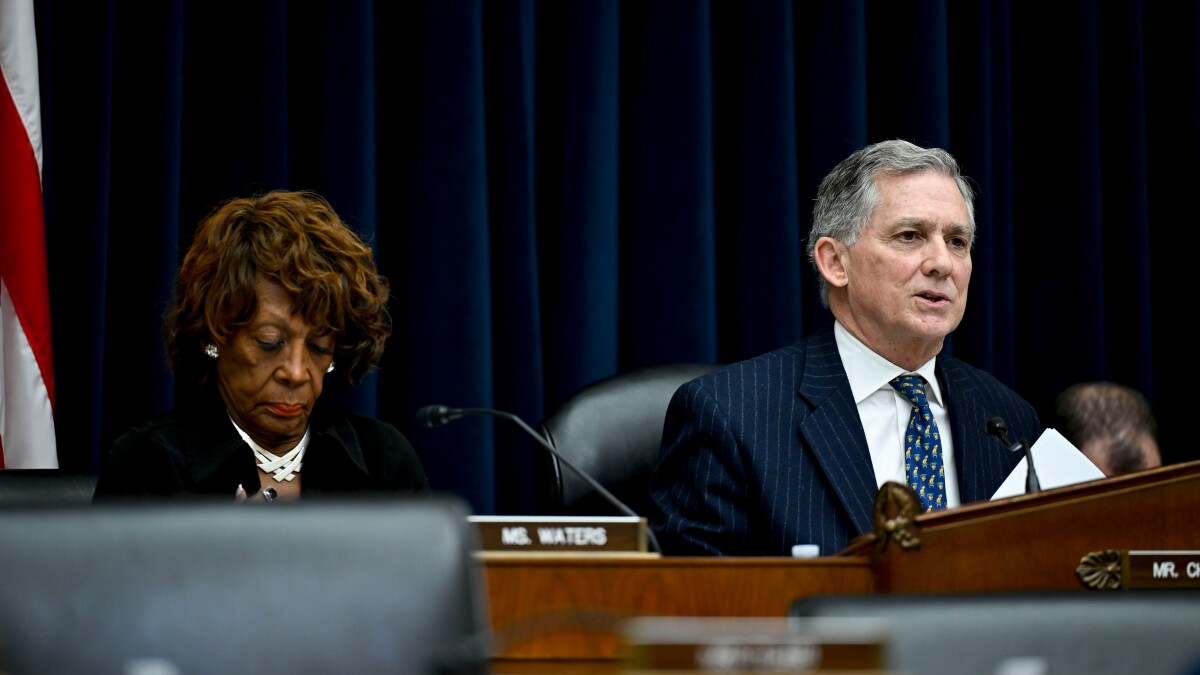Budget Bombshell: GOP Slashes Watchdog Agency Funding in Controversial Finance Bill
Finance
2025-05-01 03:07:47Content

In a bold move that could reshape financial oversight, the House Financial Services Committee has advanced a budget bill with potentially far-reaching consequences. The proposed legislation targets two key regulatory bodies: the Public Company Accounting Oversight Board (PCAOB) and the Consumer Financial Protection Bureau (CFPB).
Under the new proposal, the PCAOB would be completely dissolved, marking a significant shift in corporate financial regulation. Simultaneously, the CFPB would face a strict budgetary constraint, with its funding capped at approximately $249 million.
This legislative effort signals a major push to reduce regulatory oversight in the financial sector, potentially changing the landscape of corporate accountability and consumer protection. Supporters argue the move will reduce bureaucratic red tape, while critics warn it could leave consumers and investors more vulnerable to financial misconduct.
The bill represents a significant challenge to existing financial regulatory structures and could have substantial implications for how companies are monitored and how consumers are protected in the financial marketplace.
Congressional Showdown: Financial Oversight Agencies Face Potential Dismantling
In a dramatic legislative maneuver that could reshape the financial regulatory landscape, the House Financial Services Committee has proposed a controversial budget bill targeting key consumer protection and corporate accountability institutions. This proposed legislation signals a potentially seismic shift in how financial oversight mechanisms operate in the United States.Transformative Legislation Threatens Regulatory Foundations
The Public Company Accounting Oversight Board's Uncertain Future
The proposed budget bill represents a significant challenge to the Public Company Accounting Oversight Board (PCAOB), an organization established to ensure transparency and accountability in corporate financial reporting. By recommending complete elimination, lawmakers are potentially removing a critical watchdog that has played a crucial role in maintaining corporate financial integrity since its creation in the early 2000s. The PCAOB's potential dissolution could have far-reaching consequences for investor protection and corporate governance. Established in the wake of major accounting scandals, the board has been instrumental in implementing rigorous auditing standards and conducting comprehensive investigations into financial misconduct. Its removal would create a substantial regulatory vacuum that could potentially expose investors to increased financial risks.Consumer Financial Protection Bureau Budget Constraints
Simultaneously, the proposed legislation seeks to impose strict budgetary limitations on the Consumer Financial Protection Bureau (CFPB), capping its operational funding at approximately $249 million. This strategic financial constraint represents a significant reduction in the agency's capacity to protect consumers from predatory financial practices. The CFPB has historically been a critical safeguard for consumers, investigating and preventing unfair lending practices, protecting against fraudulent financial products, and providing essential financial education. By restricting its budget, lawmakers may be fundamentally undermining the agency's ability to fulfill its core mission of consumer protection.Political and Economic Implications
The proposed bill reflects a broader ideological debate about the role of government regulation in financial markets. Proponents argue that reducing regulatory oversight will stimulate economic growth and reduce bureaucratic inefficiencies. Critics, however, contend that such measures could potentially expose consumers and investors to increased financial vulnerabilities. Financial experts and policy analysts are closely monitoring the potential ramifications of these proposed changes. The elimination of the PCAOB and budget constraints on the CFPB could fundamentally alter the landscape of financial regulation, potentially creating unprecedented challenges for corporate accountability and consumer protection.Potential Ripple Effects Across Financial Sectors
The proposed legislative changes could trigger significant transformations across multiple financial sectors. Investment firms, corporate auditors, and financial institutions would need to adapt to a potentially less regulated environment. This shift might encourage more innovative financial practices but simultaneously raise concerns about potential systemic risks. Stakeholders ranging from small investors to large institutional players are expressing growing concern about the potential long-term consequences of these proposed regulatory modifications. The delicate balance between fostering economic innovation and maintaining robust consumer protections appears to be at a critical juncture.RELATED NEWS
Finance

Breaking: Global Finance Reveals the Game-Changers Reshaping Financial Landscapes in 2025
2025-04-08 15:25:33
Finance

From Pioneers to Prophets: How Index Fund Innovators Are Reshaping Wall Street
2025-05-05 00:00:00
Finance

Breaking Glass Ceilings: How Women in Finance Are Narrowing the Salary Gap
2025-03-25 16:45:00





